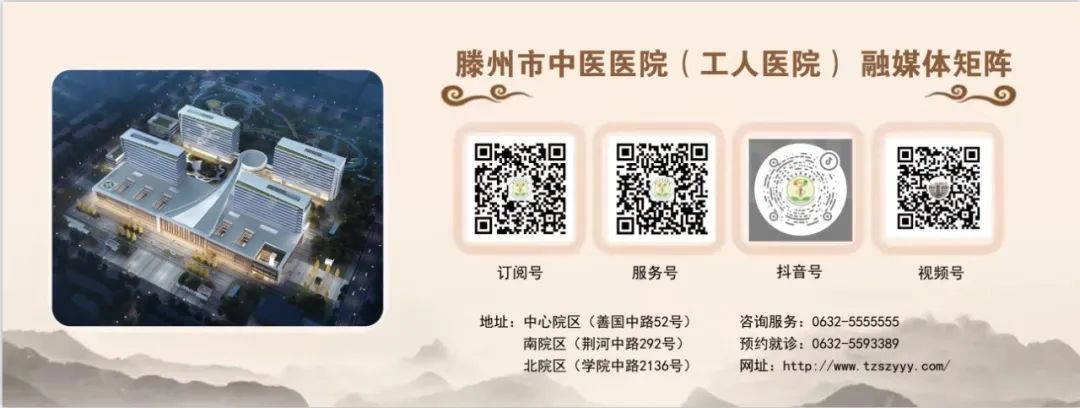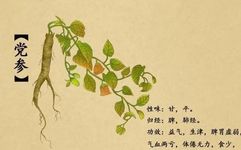In the “Ben Cao Zheng Yi” (Correct Meaning of Materia Medica), it is stated that “Dang Shen (Codonopsis pilosula) is not very different from Ren Shen (Ginseng). Its most valuable qualities are that it strengthens the spleen without causing dryness, nourishes the stomach yin without creating dampness, moistens the lungs without causing cold, nourishes the blood without being overly cloying, invigorates the clear yang, and stimulates the central qi without the adverse effects of excessive dryness.” This indicates that compared to Ren Shen, Dang Shen has the advantages of tonifying qi without causing heat, replenishing fluids without generating dampness, and nourishing blood without being greasy, making it suitable for those with both qi and blood deficiency. Its medicinal properties are neutral and balanced, making it more widely applicable.

【Properties and Channels】Sweet, neutral. Enters the spleen and lung channels.
【Characteristics】Dang Shen has a sweet and neutral flavor, with a mild effect and weak potency. It has the functions of tonifying spleen qi, lung qi, generating fluids, nourishing blood, and supporting the righteous qi while dispelling evil. It can also be used for symptoms of spleen qi deficiency, lung qi deficiency, fluid damage leading to thirst, blood deficiency, and qi deficiency with excess evil. For mild symptoms and chronic diseases, Dang Shen can be used in large doses to replace Ren Shen, while for acute and severe conditions, Ren Shen is preferred.
【Effects】Tonifies the middle and benefits qi, generates fluids and nourishes blood.
【Indications】
1. Used for insufficient central qi. Suitable for symptoms such as reduced appetite, loose stools, and fatigue in the limbs due to insufficient central qi.
2. Used for lung qi deficiency. Suitable for symptoms such as shortness of breath, cough, weakness in speech, and low voice due to lung qi deficiency.
3. Used for heat illness damaging fluids, shortness of breath, and thirst. Can alleviate symptoms such as dry mouth, shortness of breath, and thirst caused by excessive talking that depletes qi and fluids.
4. Used for blood deficiency leading to pale complexion, dizziness, and palpitations. Suitable for patients with anemia.
Additionally, it can be used in combination with exterior-releasing herbs and purgative herbs to support the righteous and dispel evil, treating conditions of exterior deficiency or interior excess with righteous deficiency.
【Dosage and Administration】10~30g. For tonifying qi and raising yang, it is best to use honey-fried; otherwise, it is used raw.
【Precautions】According to the “Eighteen Contradictions of Materia Medica”, it is advised not to combine Dang Shen with Li Lu (Veratrum) as it may produce side effects. It is not suitable for those with excessive deficiency or a constitution with excess heat.
【Origin】Originally produced in the Shangdang region of Shanxi, it is now cultivated in most northern provinces of China.
【Harvesting and Processing】Harvest in spring and autumn, with autumn harvest being preferred. After digging up the roots, remove the soil and stems, sun-dry while rubbing to ensure the skin and wood parts are closely adhered, then dry and cut into sections. Can be used raw or honey-fried.
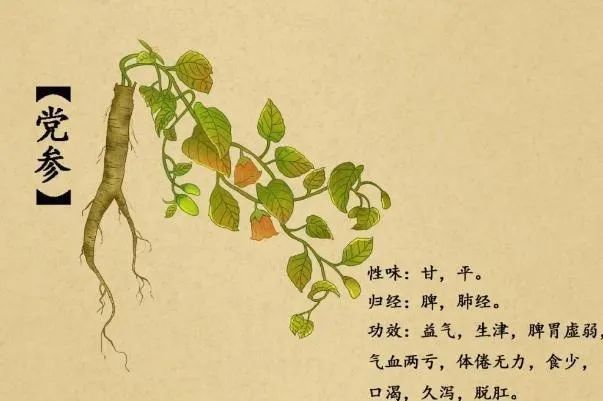
【Identification of Authenticity and Quality】
Authenticity of Dang Shen:
Genuine Product:① The root tip has numerous warty protrusions and buds, commonly referred to as “lion’s head”; ② The root tip has dense ring-like transverse stripes that gradually become sparse downward, some can reach half the length. Cultivated varieties have few or no ring-like transverse stripes; ③ The broken ends of the lateral roots often have a black-brown gelatinous substance with a slightly sweet taste.
Fake Products:① The dried roots of the Apiaceae plant, Ligusticum, without “lion’s head”, and the root tip has scale-like leaf stalk remnants with a carrot flavor; ② The dried roots and rhizomes of the Campanulaceae plant, Codonopsis, are spindle-shaped, short and thick, often with small lumpy protrusions, light in weight, with a flat cross-section and no yellow heart, and have a pungent taste when chewed; ③ The dried roots of the Campanulaceae plant, large-flowered Codonopsis, have many branches, uneven cross-sections, and produce a lot of residue when chewed.
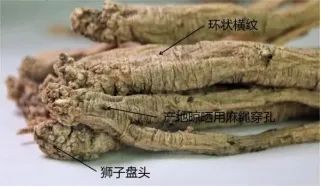
Quality Distinction::
A. Look: Observe the “lion’s head” and “ring-like transverse stripes” of Dang Shen. Wild Dang Shen has a surface color ranging from yellow-brown to gray-brown, with numerous warty protrusions and buds at the root tip, commonly referred to as “lion’s head”. High-quality Dang Shen has thick roots, loose skin, firm flesh, a smooth cross-section, yellow-white color with a chrysanthemum heart, and thicker, horn-like skin is considered the best.
B. Smell: Smell for fragrance and taste. When you have Dang Shen, you can first smell it; Dang Shen has a special aroma.
C. Taste: A sweet taste with no residue when chewed is considered superior.
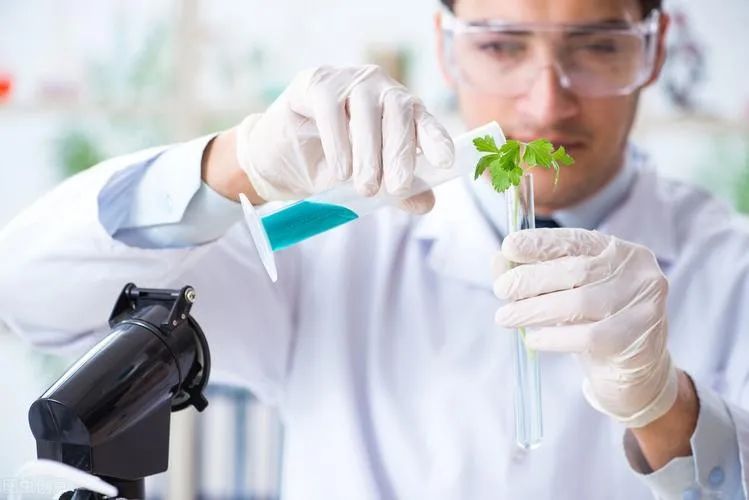
【Modern Pharmacological Research】
Effects on the central nervous system, digestive system, cardiovascular system, antibacterial effects, effects on the blood system, effects on the immune system, enhancement of cold resistance, and additionally, Dang Shen has certain effects in lowering blood sugar, improving learning and memory functions, enhancing SOD activity, anti-hypoxia, anti-radiation, anti-cancer, anti-inflammatory, and analgesic effects.
【Clinical Applications and Combinations】
Dang Shen is a medicine that tonifies both qi and yin, widely used in clinical practice. Depending on the combination, it plays different roles in various formulas.
1. For insufficient central qi and weak spleen qi:
Dang Shen combined with Bai Zhu (Atractylodes macrocephala), Fu Ling (Poria), and Gan Cao (Licorice) forms the “Si Jun Zi Tang” (Four Gentlemen Decoction); combined with Huang Qi (Astragalus), Dang Gui (Angelica), Chen Pi (Tangerine Peel), and Chai Hu (Bupleurum) forms the “Bu Zhong Yi Qi Tang” (Tonify the Middle and Benefit Qi Decoction), both effective for symptoms of insufficient central qi, reduced appetite, loose stools, and fatigue in the limbs.
2. For lung qi deficiency and both spleen and lung deficiency:
Dang Shen combined with Huang Qi and Wu Wei Zi (Schisandra) forms the “Bu Fei Tang” (Tonify the Lung Decoction), used to treat symptoms of lung qi deficiency such as shortness of breath, cough, weakness in speech, and low voice; if combined with Fu Ling, Bai Zhu, Chen Pi, and Lian Zi (Lotus Seed), it forms the “Shen Ling Bai Zhu San” (Ginseng, Poria, and Atractylodes Powder), which has good therapeutic effects for spleen and lung deficiency, shortness of breath, cough, reduced appetite, and fatigue.
3. For heat illness damaging fluids and shortness of breath with thirst:
Dang Shen combined with Mai Dong (Ophiopogon) and Wu Wei Zi forms the “Sheng Mai Yin” (Generate the Pulse Decoction), commonly used to treat symptoms of qi and fluid damage, thirst, and fatigue.
4. For blood deficiency leading to pale complexion, dizziness, and palpitations
Dang Shen is often combined with Shu Di Huang (Rehmannia), Dang Gui, Chuan Xiong (Ligusticum), Bai Zhu, and Gan Cao to achieve the dual tonification of qi and blood, known as “Ba Zhen Tang” (Eight Treasure Decoction), treating symptoms of qi and blood deficiency; if Huang Qi and Rou Gui (Cinnamon) are added, it becomes the famous formula for dual tonification of qi and blood, “Shi Quan Da Bu Tang” (Ten Complete Great Tonifying Decoction).
5. For exterior deficiency or interior excess with righteous deficiency
Dang Shen can benefit qi and release the exterior, supporting the righteous and dispelling evil, treating exterior deficiency or cases of persistent diarrhea and prolonged illness, it can be used in the method of Ren Shen Bai Du San.
Consultation Information
【Central Hospital District】
Address: No. 52, Shanguo Middle Road, Tengzhou City
Consultation Phone: Pharmacy Department 0632-5593116
【South Hospital District】
Address: No. 292, Jinghe Middle Road, Tengzhou City
Consultation Phone: Traditional Chinese Medicine Pharmacy 0632-5690352
【North Hospital District】
Address: No. 2136, Xueyuan Middle Road, Tengzhou City
Phone: Shared Wisdom Traditional Chinese Medicine Pharmacy 0632-5089580
Contributed by | Li Mengying
Edited by | Cao Jing
Reviewed by | Lü Gaojing
